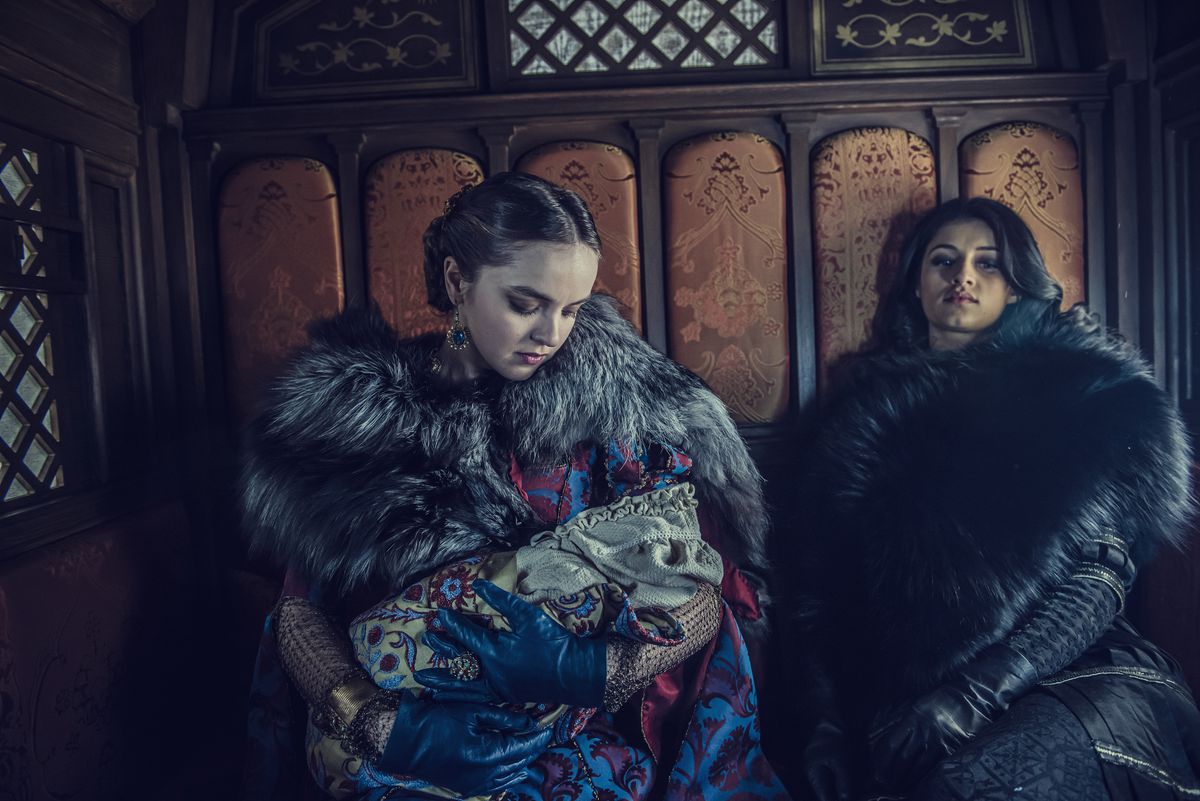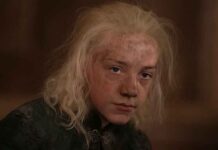HBO’s “Game of Thrones” was one of the most talked-about television shows of the decade. It was a pop culture phenomenon, and its conclusion has left a major hole in pop culture space. So there naturally have been plenty of theories and predictions about what will be the next “Game of Thrones.”
The show — often praised but also criticized for its depictions of sex and violence — was a generational experience that seemed like it couldn’t be replicated.
But Netflix is trying.
Enter “The Witcher,” a new Netflix original series that has skyrocketed in popularity and has already been compared to “Game of Thrones.” An adaptation of a book series, “The Witcher” leans into the fantasy genre but also celebrates its absurdity, whereas “Game of Thrones” was grounded and serious. Still, “The Witcher” embraces many of the darker and more explicit elements of “Game of Thrones” — the violence, language and nudity.
“The Witcher” centers around Geralt (Henry Cavill), a mutated monster hunter who looks for his place in the world. He finds himself involved with ongoings of Yennefer of Vengerberg (Anya Chalotra) and Ciri (Freya Allan), a princess of the land called the Continent.
The show — like “Game of Thrones” — comes from a book series by Polish author Andrzej Sapkowski. The first season specifically uses short stories from the books “The Last Wish” and “Sword of Destiny,” which are short stories that happen before the main saga. The show was first adapted for video games. The most recent game, called “The Witcher 3: Wild Hunt,” sold 20 million copies.
It sounds like typical fantasy fun, and it seems to be striking a chord. “The Witcher” is currently the most in-demand television program out there, surpassing Disney Plus’ “The Mandalorian,” according to data from Parrot Analytics. The show reportedly had 127 million demand expressions, compared to 115 million for “The Mandalorian,” Business Insider reported. The show is one of the most popular on Netflix, too, sitting only behind “Stranger Things.”
The popularity hasn’t gone unnoticed. “The Witcher” was approved for a second season before the first one hit screens. Audiences have given it a 93% rating on Rotten Tomatoes.
There has been critical acclaim as well. USA Today’s Kelly Lawler called “The Witcher” a show that is “an amalgamation of terribleness, hilarity, cool fight scenes and a song you’ll never get out of your head.”
“The more you watch, the better you feel, as the ridiculous characters and twists wash over you, each more absurd than the last. (A knight with a hedgehog head is also a romantic hero.) By the eighth and final episode, you might even find yourself wishing there were more. “
“The reason ’Witcher’ rides so high on its inanity is that it’s completely in on the joke. It’s instantly clear it’s not a show that takes itself seriously in the slightest. The opening scene is a display of delectable corniness, a monster fight straight out of a 1980s B-movie, with slightly better effects. By the end of the first episode you realize the show has been taking place in two timelines (with one more to come). It’s as if the writers admit that, hey, you probably don’t get what’s happening, but doesn’t it look fantastic and fun?”
And, as Tim Surette of TV Guide noted, the show may improve on areas that “Game of Thrones” and other fantasy series failed at.
“But where ‘Game of Thrones’ was a sprawling story with 10 billion main characters and inspired by events from real-world history, ‘The Witcher’ is almost intimate in comparison, following just three main characters (and the many characters surrounding their journeys), but is truly out there in the realms of high fantasy.”
Still, “The Witcher” leans heavily into the “Game of Thrones” style of fantasy, with gorgeous sets, fantastical villains and creatures and old-time dialogue and music.
It’s also heavy on explicit content, including nudity, cursing and gore. According to data from VidAngel provided by the Parents Television Council, the first season featured 417 instances of violence, 271 moments of sexual content and 207 examples of explicit language.
Critics have been a little uneasy about the show for these reasons. As The Atlantic’s Helen Lewis puts it:
“An episode of ‘Game of Thrones’ often looked like everyone involved was thinking: I went to drama school so I could make profound meditations on the human condition, yet here I am in the snow, with my leg cut off, while some naked priestess spouts gibberish. ‘The Witcher’ shares the ‘Game of Thrones’ attitude toward gore (plentiful) and nudity (gratuitous), but its tone could not be more different. It knows it is ridiculous, and it simply doesn’t care.”
The show waits five minutes into its opening episode before we see nude women in a palace working with garden plants. In fact, one of the main plot points of the show involves nudity. The kings demand that the “mages” they are partnered with be beautiful. So these female characters with magical abilities spend a lot of time doing magic while being topless.
“Essentially, these ultra-powerful mages who can bend nature and reality to their will are just content with being hot and serving as right hands to their respective kings. It doesn’t make total sense even within the story — but it’s perfect if you want to create a show with very good-looking women doing lots of fun, topless magic and lots of mystical robes with chest cutouts,” according to Alex Abad-Santos of Vox.
There’s also a scene where Yennfer, one of the main female characters, breaks her bones into a new shape to rework her appearance to fit the beautiful ideal required by the kings.
The show also includes a number of battle scenes. One of which from the opening episodes shows a warrior getting his throat cut.
If you haven’t figured it out by now, “The Witcher” is not the clean-cut, family-friendly fantasy show. It’s a more absurd version of “Game of Thrones,” one that is more intimate and leans into the things that made “Game of Thrones” questionable.
Part of the initial success of “The Witcher” could be attributed to its beginnings. It started as a popular book series and video game, which meant there was an audience even from the get-go.
And fans of the previous stories likely know what they are getting into.
Consider the most recent video game “The Witcher 3: Wild Hunt,” which isn’t exactly family-friendly, either. The game is rated M for blood and gore, intense violence, nudity, strong language, strong sexual content and alcohol use. There are points in the game where characters can embrace sexual activity with prostitutes and female friends. “These brief sequences depict females’ breasts and buttocks — sexual moaning sounds can be heard, though the camera cuts away from explicit sexual acts,” according to the ESRB.
The alcohol scenes show characters drunk, passed out and using harsh profanity. There’s no holding back.
So the content of the show shouldn’t be a surprise to those familiar with the source material.
“That’s part of the love of being a fan; love and desperation,” Ashley A. Hinck, an assistant professor at Xavier University with an expertise in fandom, told The Verge. “You want more even if it’s not awesome. Having a built in audience and fans committed to viewing that universe across what platform it takes place in is important for companies.”
Netflix is hoping “The Witcher” becomes its own “Game of Thrones,” writes Adam Epstein of Quartz. Netflix has created big-budget films and series — like “The Dark Crystal” and “Daredevil,” among others — but none have stuck like “Game of Thrones” did for HBO.
“As viewers are flooded with a deluge of content from seemingly every company on earth, it’s becoming increasingly important for networks and streaming services to make shows and movies that stand out from the crowd,” Epstein wrote.
He added, “With ‘Game of Thrones’ now off the air, there’s room for a similar fantasy series to break through and control water-cooler conversations for years to come. It also won’t hurt if a show like ‘The Witcher,’ with its high production values, helps Netflix cut back into HBO’s Emmy lead. Netflix has made several really good shows, but it hasn’t put out a tentpole drama since ‘Stranger Things’ in 2016.”

But becoming “Game of Thrones” may mean indulging in violence and nudity even if it doesn’t matter for the plot.
Melissa Henson, program director for the Parents Television Council, told the Deseret News she’s worried about the explicit content that “in many cases, it does seem like it was just put there purely for titillation and not because it serves any artistic purpose, not because it serves any purpose for, you know, advancing the plot or advancing the storyline.
“It just seems like it’s there to the be there so they can get that rating so that they can appeal to whatever … audience or the demographic that they’re trying to appeal to,” Henson said. “And I think that’s really unfortunate and totally unnecessary.”
While Disney Plus has created a platform for family-friendly viewing, the major players like Amazon and Netflix produce a lot of offerings with mature content.
“I feel like now we’re in this space for the entertainment world where you can’t watch TV as a family,” Henson said. “It is becoming so segmented so that you have to send the kids out of the room if you want to sit down and watch something because there’s always going to be that risk now that there’s going to be the gratuitous nudity, the gratuitous F-words, the gratuitous violence, that is totally unnecessary and not market-driven at all as far as I can see.
“It’s just unfortunate that they feel the need to go there in the first place.”




















![[Book Review] The Blade Itself (The First Law Trilogy) by Joe Abercrombie](https://bendthekneegot.com/wp-content/uploads/2018/01/1516047103_maxresdefault-218x150.jpg)

















